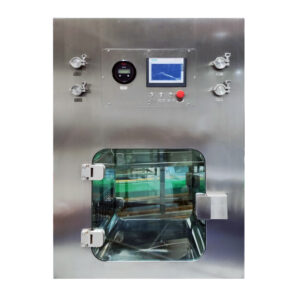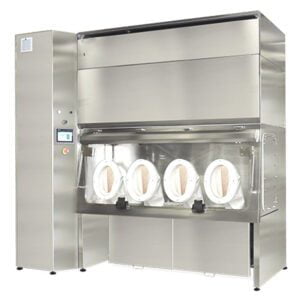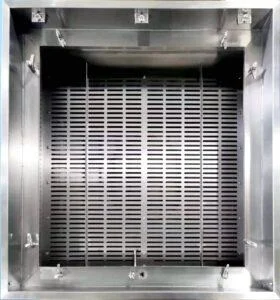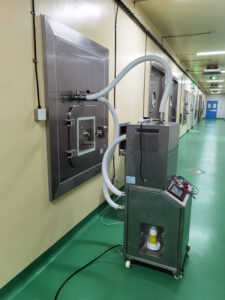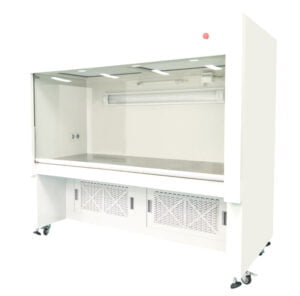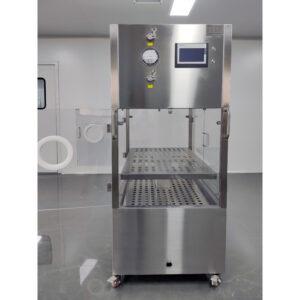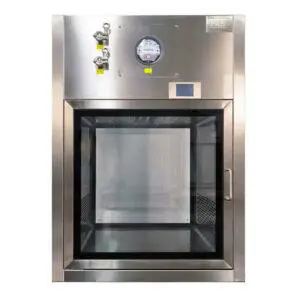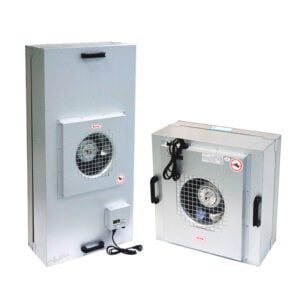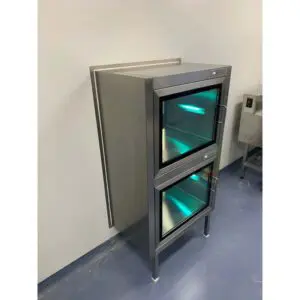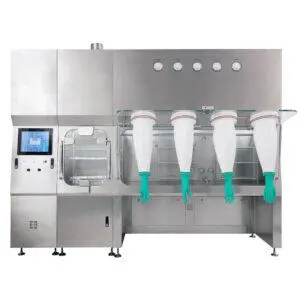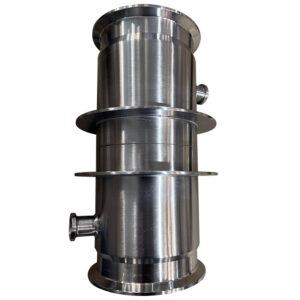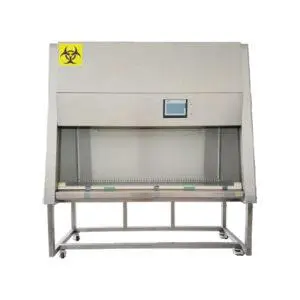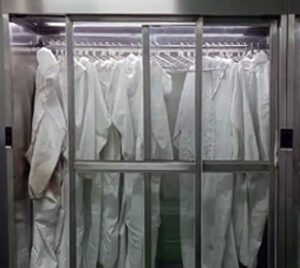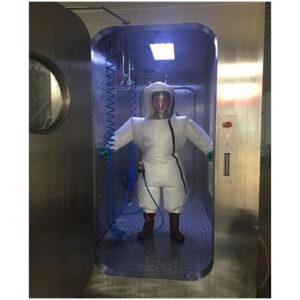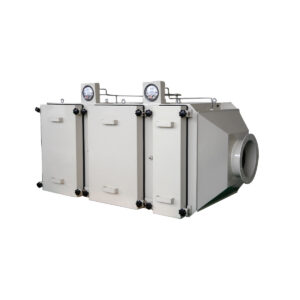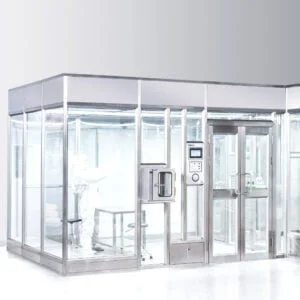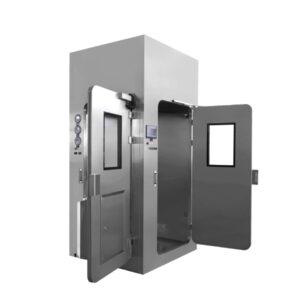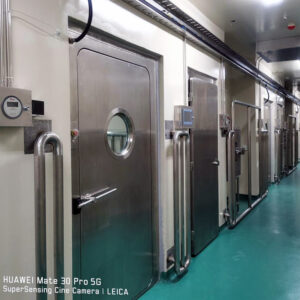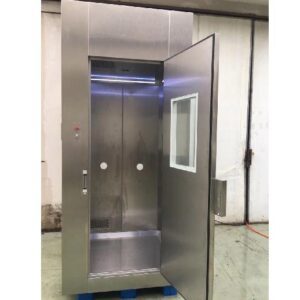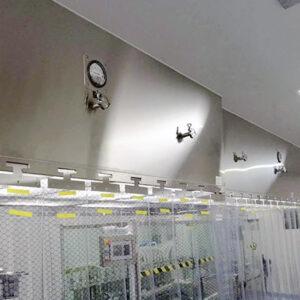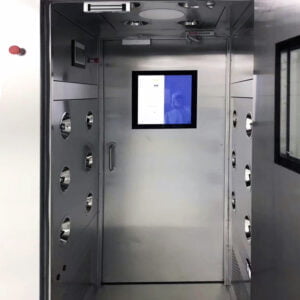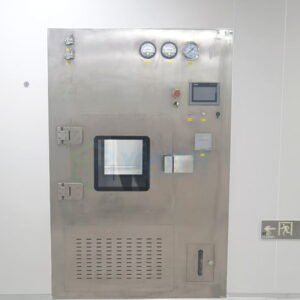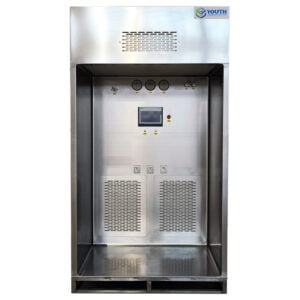Modular Mobile LAF Carts are revolutionizing the way we approach cleanroom environments, offering unprecedented flexibility and efficiency in laboratory and manufacturing settings. These innovative carts combine the principles of modular design with the strict requirements of laminar airflow, creating a versatile solution for various industries. As we delve into the world of Modular Mobile LAF Carts, we'll explore how they're changing the game in cleanroom technology and why they're becoming an indispensable tool for professionals across multiple sectors.
In this comprehensive guide, we'll examine the key features that make Modular Mobile LAF Carts stand out, including their adaptable configurations, ease of use, and compliance with industry standards. We'll also discuss the benefits of implementing these carts in your facility, from improved workflow to cost savings. Whether you're a seasoned cleanroom manager or new to the field, this article will provide valuable insights into the flexible design concepts that are shaping the future of controlled environments.
As we transition into the main content, it's important to understand that the concept of modular design is at the heart of these innovative LAF carts. This approach allows for customization and scalability, meeting the diverse needs of different industries while maintaining the highest standards of cleanliness and contamination control.
Modular Mobile LAF Carts represent a significant leap forward in cleanroom technology, offering unparalleled flexibility and efficiency through their innovative design concepts.
What are the key features of Modular Mobile LAF Carts?
Modular Mobile LAF Carts are characterized by their adaptable design and essential features that cater to the demanding requirements of cleanroom environments. These carts combine the principles of laminar airflow with the convenience of mobility, creating a versatile solution for various applications.
At the core of these carts is their modular construction, allowing for easy customization and reconfiguration. This flexibility enables users to adapt the cart to different tasks or workspace layouts without compromising on performance or cleanliness standards.
Key features typically include HEPA filtration systems, adjustable airflow settings, and ergonomic design elements that enhance user comfort and productivity. Many models also incorporate energy-efficient LED lighting and easily cleanable surfaces to maintain sterility.
The modular design of these LAF carts allows for quick adaptation to changing cleanroom needs, with some models offering up to 50% faster reconfiguration times compared to traditional fixed LAF units.
| Feature | Benefit |
|---|---|
| Modular Construction | Customizable to specific needs |
| HEPA Filtration | Ensures ISO Class 5 or better air cleanliness |
| Adjustable Airflow | Optimizes performance for different tasks |
| Mobile Design | Increases flexibility in cleanroom layout |
In conclusion, the key features of Modular Mobile LAF Carts combine to create a powerful tool for maintaining cleanroom standards while offering the flexibility needed in modern laboratory and manufacturing environments. These features not only enhance performance but also contribute to improved workflow and efficiency.
How do Modular Mobile LAF Carts enhance workflow efficiency?
Modular Mobile LAF Carts are designed with workflow efficiency at the forefront, offering a range of benefits that streamline operations in cleanroom environments. By integrating mobility with laminar airflow technology, these carts allow for unprecedented flexibility in workspace organization and task management.
The ability to move these carts to different locations within a facility means that clean air environments can be created exactly where they are needed. This eliminates the need for personnel to move between fixed workstations, reducing contamination risks and saving valuable time.
Furthermore, the modular nature of these carts allows for quick reconfiguration to suit different tasks. Whether it's adjusting the height for different operators or swapping out accessories for specific procedures, the adaptability of these carts significantly reduces downtime between operations.
Studies have shown that implementing Modular Mobile LAF Carts can increase productivity by up to 30% in cleanroom environments, primarily due to reduced setup times and improved ergonomics.
| Efficiency Factor | Impact |
|---|---|
| Mobility | Reduces travel time between workstations |
| Quick Reconfiguration | Minimizes downtime between tasks |
| Ergonomic Design | Improves operator comfort and productivity |
| Task-Specific Setups | Enhances precision and reduces errors |
In conclusion, Modular Mobile LAF Carts significantly enhance workflow efficiency by providing a flexible, mobile clean air solution that can be tailored to specific tasks and locations. This adaptability not only improves productivity but also contributes to a more dynamic and responsive cleanroom environment.
What industries benefit most from Modular Mobile LAF Carts?
Modular Mobile LAF Carts have found applications across a wide range of industries where cleanliness and contamination control are paramount. These versatile units have become invaluable tools in sectors ranging from pharmaceuticals to electronics manufacturing.
In the pharmaceutical industry, these carts provide critical support for drug compounding, sterile manufacturing, and quality control processes. The ability to move clean air environments to different areas of a facility enhances flexibility in production lines and research laboratories.
The semiconductor and electronics industries also benefit greatly from these carts, using them for sensitive component assembly and testing. The controlled environment provided by the LAF carts helps maintain the integrity of delicate electronic parts during manufacturing and inspection processes.
Research indicates that the adoption of Modular Mobile LAF Carts in the biotechnology sector has led to a 25% reduction in contamination incidents during sensitive cell culture procedures.
| Industry | Application |
|---|---|
| Pharmaceuticals | Drug compounding, sterile manufacturing |
| Electronics | Component assembly, quality control |
| Biotechnology | Cell culture, genetic research |
| Aerospace | Precision parts manufacturing |
| Medical Devices | Assembly and testing of sterile equipment |
In conclusion, while Modular Mobile LAF Carts offer benefits across many sectors, they are particularly advantageous in industries where maintaining sterile conditions is critical to product quality and safety. Their flexibility and efficiency make them an essential tool in modern cleanroom operations across various high-tech and life science fields.
How do Modular Mobile LAF Carts comply with industry standards?
Compliance with industry standards is a crucial aspect of Modular Mobile LAF Carts, ensuring they meet the rigorous requirements of cleanroom environments. These carts are designed and manufactured to adhere to various international standards and guidelines that govern cleanroom operations and contamination control.
One of the primary standards these carts comply with is ISO 14644, which defines cleanliness classes for cleanrooms and controlled environments. Modular Mobile LAF Carts are typically designed to meet ISO Class 5 or better, providing a level of air cleanliness suitable for critical processes.
Additionally, these carts often comply with cGMP (current Good Manufacturing Practice) guidelines, which are essential for pharmaceutical and medical device industries. This compliance ensures that the carts meet the stringent quality control and documentation requirements necessary for regulated industries.
Modular Mobile LAF Carts from leading manufacturers are designed to meet or exceed ISO 14644-1 standards, with some models achieving particle counts 50% below the maximum allowable for ISO Class 5 environments.
| Standard | Relevance |
|---|---|
| ISO 14644 | Cleanroom classification and monitoring |
| cGMP | Quality assurance in regulated industries |
| EU GMP | European standards for pharmaceutical manufacturing |
| IEST | Contamination control guidelines |
In conclusion, Modular Mobile LAF Carts are engineered to comply with a range of industry standards, ensuring they meet the exacting requirements of cleanroom operations across various sectors. This compliance not only guarantees performance but also provides users with confidence in the cart's ability to maintain the necessary levels of cleanliness and contamination control.
What maintenance considerations are important for Modular Mobile LAF Carts?
Proper maintenance of Modular Mobile LAF Carts is essential for ensuring their continued performance and longevity. Regular upkeep not only preserves the cart's functionality but also maintains its compliance with cleanroom standards and regulations.
One of the most critical maintenance tasks is the regular inspection and replacement of HEPA filters. These filters are the heart of the LAF system, and their efficiency directly impacts the cleanliness of the air delivered by the cart. Manufacturers typically recommend filter replacements based on usage hours or pressure drop measurements.
Cleaning and sanitizing the cart's surfaces is another crucial aspect of maintenance. This includes not only the work surface but also the exterior panels, wheels, and any accessories. Using appropriate cleanroom-compatible cleaning agents is essential to prevent contamination and maintain the integrity of the cart's materials.
Studies show that well-maintained Modular Mobile LAF Carts can have an operational lifespan of up to 15 years, with some high-end models requiring only minimal part replacements during this period when properly cared for.
| Maintenance Task | Frequency |
|---|---|
| HEPA Filter Inspection | Monthly |
| Filter Replacement | Annually or as needed |
| Surface Cleaning | Daily or after each use |
| Motor and Fan Check | Quarterly |
| Calibration | Annually |
In conclusion, regular and thorough maintenance is crucial for the optimal performance of Modular Mobile LAF Carts. By adhering to a comprehensive maintenance schedule, users can ensure their carts continue to provide a reliable clean air environment, maintain compliance with industry standards, and maximize the return on investment over the equipment's lifetime.
How do Modular Mobile LAF Carts contribute to sustainability efforts?
Modular Mobile LAF Carts are increasingly being recognized for their contribution to sustainability efforts in laboratory and manufacturing settings. These innovative units align with green initiatives by offering energy-efficient operation and promoting resource conservation.
One of the primary ways these carts contribute to sustainability is through their energy-efficient design. Many models incorporate LED lighting and variable speed fans, which significantly reduce power consumption compared to traditional fixed LAF units. This not only lowers operational costs but also reduces the overall carbon footprint of the facility.
The modular nature of these carts also plays a role in sustainability. By allowing for easy upgrades and part replacements, the lifespan of the equipment is extended, reducing the need for frequent replacements and the associated waste. Additionally, the ability to reconfigure carts for different uses means fewer specialized units are needed, further conserving resources.
Recent data suggests that facilities utilizing Modular Mobile LAF Carts have reported up to 40% reduction in energy consumption related to cleanroom operations, contributing significantly to their overall sustainability goals.
| Sustainability Aspect | Impact |
|---|---|
| Energy-Efficient Components | Reduced power consumption |
| Extended Equipment Lifespan | Less frequent replacements |
| Versatile Usage | Fewer specialized units required |
| Recyclable Materials | Reduced end-of-life waste |
In conclusion, Modular Mobile LAF Carts are playing a significant role in advancing sustainability efforts within cleanroom environments. Their energy-efficient design, coupled with their modularity and longevity, makes them an environmentally responsible choice for facilities looking to reduce their ecological impact while maintaining high standards of cleanliness and efficiency.
What future developments can we expect in Modular Mobile LAF Cart technology?
The field of Modular Mobile LAF Cart technology is continuously evolving, with manufacturers and researchers constantly pushing the boundaries of what these versatile units can achieve. As we look to the future, several exciting developments are on the horizon that promise to enhance the capabilities and efficiency of these essential cleanroom tools.
One area of development is the integration of smart technology and IoT (Internet of Things) capabilities. Future LAF carts may incorporate sensors that monitor air quality, filter efficiency, and usage patterns in real-time. This data could be transmitted to central management systems, allowing for predictive maintenance and optimized performance.
Another promising direction is the development of more sustainable materials and components. Researchers are exploring the use of recycled and biodegradable materials in cart construction, as well as more energy-efficient filtration systems that maintain high levels of air cleanliness while reducing power consumption.
Industry experts predict that by 2025, over 60% of new Modular Mobile LAF Carts will incorporate some form of smart technology, enabling advanced monitoring and control capabilities.
| Future Development | Potential Impact |
|---|---|
| IoT Integration | Enhanced monitoring and control |
| Sustainable Materials | Reduced environmental footprint |
| Advanced Filtration | Improved efficiency and performance |
| AI-Assisted Operation | Optimized workflow and energy use |
In conclusion, the future of Modular Mobile LAF Cart technology looks bright, with advancements in smart technology, sustainability, and performance on the horizon. These developments will likely lead to even more efficient, environmentally friendly, and user-friendly carts that continue to meet the evolving needs of cleanroom environments across various industries.
As we conclude our exploration of Modular Mobile LAF Carts, it's clear that these innovative units represent a significant advancement in cleanroom technology. Their flexible design concepts, combined with robust performance and compliance with industry standards, make them an invaluable tool for a wide range of sectors.
The ability of these carts to enhance workflow efficiency, adapt to various tasks, and contribute to sustainability efforts underscores their importance in modern cleanroom operations. From pharmaceuticals to electronics manufacturing, YOUTH Modular Mobile LAF Carts are setting new standards for cleanliness, flexibility, and productivity.
As technology continues to evolve, we can expect to see even more sophisticated and efficient Modular design concepts in the future, further revolutionizing the way we approach contamination control and cleanroom management. Whether you're upgrading your existing facilities or planning new cleanroom projects, considering Modular Mobile LAF Carts could be a game-changing decision for your operations.
External Resources
Modular Design in Architecture: Transforming Construction – This article explains how modular design is revolutionizing the construction industry through cost-effective, sustainable, and flexible solutions. It discusses the principles of modular design, including standardization, flexibility, and scalability.
Modular Design: Crafting Reusable and Interchangeable Components – This piece focuses on the application of modular design in software and product development, highlighting its benefits such as sustainability, flexibility, scalability, and ease of maintenance. It also discusses concepts like low coupling, modifiability, and reusability.
The Benefits of Modular Design in Manufacturing – This blog post explains the concept of modular design in manufacturing, emphasizing the use of standardized, interchangeable parts. It discusses how modular manufacturing contrasts with traditional methods and highlights the efficiency and flexibility it offers.
Modular Design Review – This resource provides an example of modular design implementation in a climate modeling system, defining distinct modules for different components like atmosphere and ocean modeling.
Modular Design in Product Development – This article from IEEE explores the application of modular design in product development, discussing how it enhances product flexibility, reduces production costs, and improves product maintainability.
Modular Design Principles and Practices – This publication outlines the core principles and practices of modular design, including standardization, modularity, and the benefits of using modular approaches in various industries.
Modular Design for Systems Engineering – This resource from ScienceDirect discusses the application of modular design in systems engineering, focusing on how it improves system maintainability, scalability, and the ease of upgrading components.
Modular Design in Software Engineering – This article explains the concept of modular design in software engineering, highlighting its advantages such as easier maintenance, testing, and the ability to work on different modules independently.
Related Contents:
- Cleanroom Mobile LAF Carts: Material Transport Tips
- Biotech Research: Mobile LAF Cart Applications
- GMP-Compliant Mobile LAF Carts: Certification Guide
- ISO 14644-1 Compliant Mobile LAF Carts: 2025 Guide
- Customizable Mobile LAF Carts: Design Your Ideal
- Mobile LAF Carts for Semiconductor Industry: Guide
- Food Industry Mobile LAF Carts: Sterile Packaging
- Energy-Efficient Mobile LAF Carts: 2025 Top Picks
- Mobile LAF Carts for Pharma: Sterile Transfer Guide

